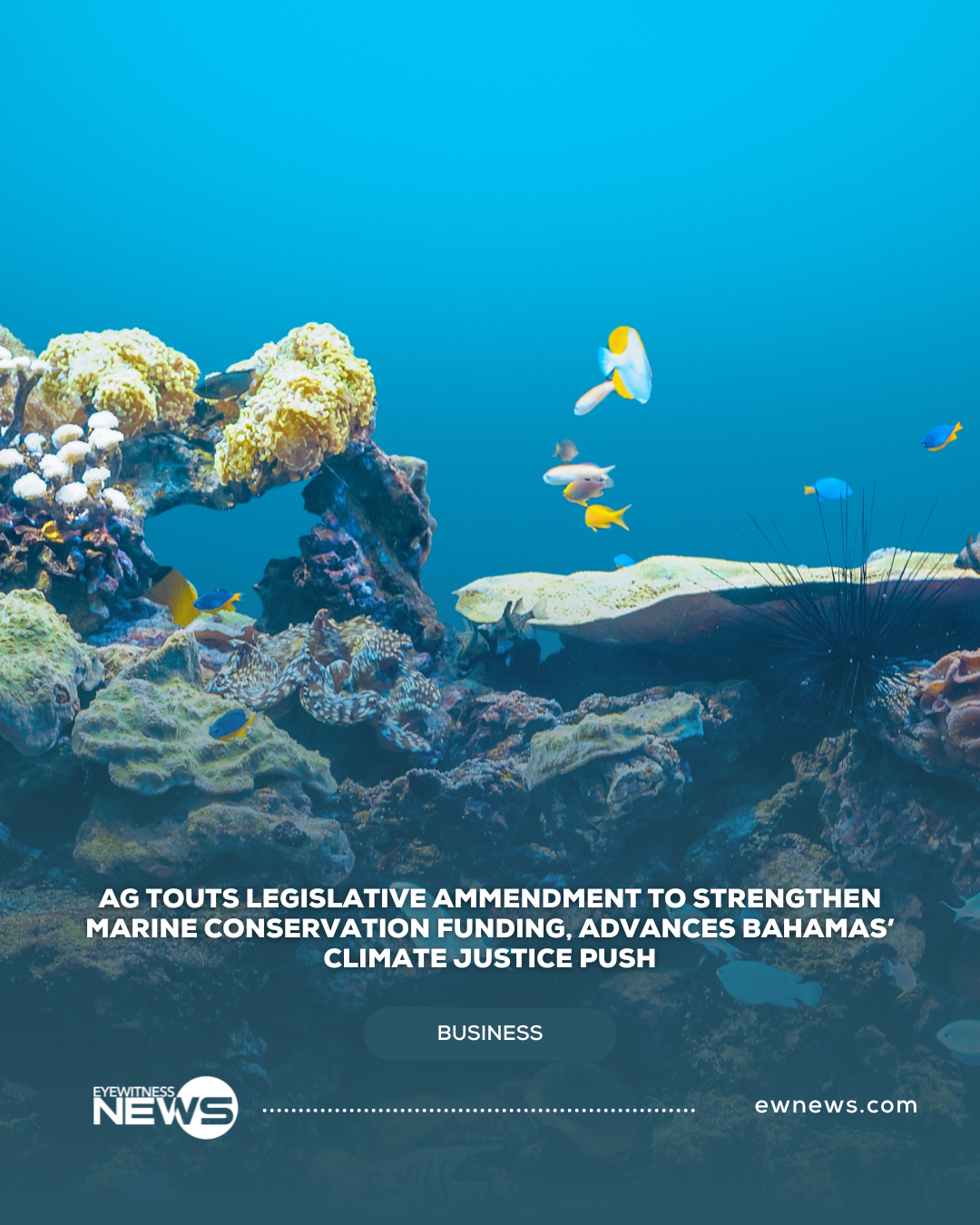NASSAU, BAHAMAS — Attorney General and Minister of Legal Affairs Senator Ryan Pinder, K.C, said the Bahamas Protected Areas Fund (Amendment) Act, 2025, represents a critical step in unlocking millions in marine conservation funding while reinforcing The Bahamas’ position as a global leader in climate justice.
Speaking during his contribution to debate in the Senate on Monday, Pinder said the amendment is designed to ensure the effective execution of The Bahamas Debt Conversion Project for Marine Conservation—a fifteen-year initiative launched in November 2024 to bolster the nation’s environmental stewardship and sustainable resource management.
“The amendment facilitates the effective implementation of the Debt Conversion Project, particularly the disbursement of capacity-building funds,” Pinder explained. “The current legislation restricts the Bahamas Protected Areas Fund from funding salaries and routine expenditures, which impedes our ability to strengthen institutional capacity. The change will allow targeted exceptions under this project.”
The proposed legislative changes will also improve the governance structure of the Bahamas Protected Areas Fund (BPAF) by allowing two government-appointed directors to serve at the government’s discretion, aligning with existing provisions for permanent board representation by The Bahamas National Trust (BNT) and The Nature Conservancy.
According to Pinder, passage of the amendment will enable the timely release of funds already allocated to key government departments, including the Forestry Unit, and help advance community-based marine conservation programs and blue economy initiatives across the Family Islands.
“The effective implementation of the Debt Conversion Project through the BPAF is consistent with this PLP administration’s commitment to the climate welfare of The Bahamas,” Pinder said. “We are doing our part to enhance the environment and biodiversity of our great country.”
The Attorney General used the occasion to reaffirm The Bahamas’ leadership on the world stage in advocating for climate justice, emphasizing that major industrial nations bear the greatest responsibility for the global climate crisis.
“It is our moral responsibility to be on the side of climate advocacy and justice,” he said. “The polluters must pay. They must take the ethical, moral, and financial responsibility for the damage they have done to countries like The Bahamas.”
Pinder highlighted The Bahamas’ recent success before the International Court of Justice (ICJ), which in July issued a landmark Advisory Opinion confirming that all states bear legal—not just moral—obligations under international law to address climate change. The Court’s opinion, he said, affirms that states have binding duties to prevent environmental harm, cooperate on climate action, and safeguard the rights of present and future generations to a healthy environment.
“This is seismic for small island developing states,” Pinder noted. “The Advisory Opinion grants new legal legitimacy to claims for loss and damage, adaptation support, and climate litigation. It transforms what has been framed as a moral imperative into a legal duty.”
Pinder disclosed that The Bahamas has retained attorneys in the United States and the United Kingdom to explore legal options for holding major polluters accountable for climate-related harm. “We are seeking legal advice on the ability of The Bahamas to bring a cause of action against commercial enterprises whose clear and obvious contributions to the climate crisis create liability to The Bahamas,” he said. “The Bahamas deserves climate justice.”
He added that the government is also examining potential advocacy before the United Nations related to human rights violations caused by climate neglect by major emitting countries.
Pinder credited Prime Minister Philip Davis for his unwavering leadership in advancing environmental protection and climate reform efforts. “Prime Minister Philip Brave Davis has been the strongest Bahamian leader to advocate for our environment and to pursue recourse in the face of the climate crisis,” Pinder said. “This is a promise fulfilled to the Bahamian people. Advocating for climate justice is a central pillar of that promise, and we will continue to ensure The Bahamas remains at the forefront of reform and reparations for loss and damage.”






